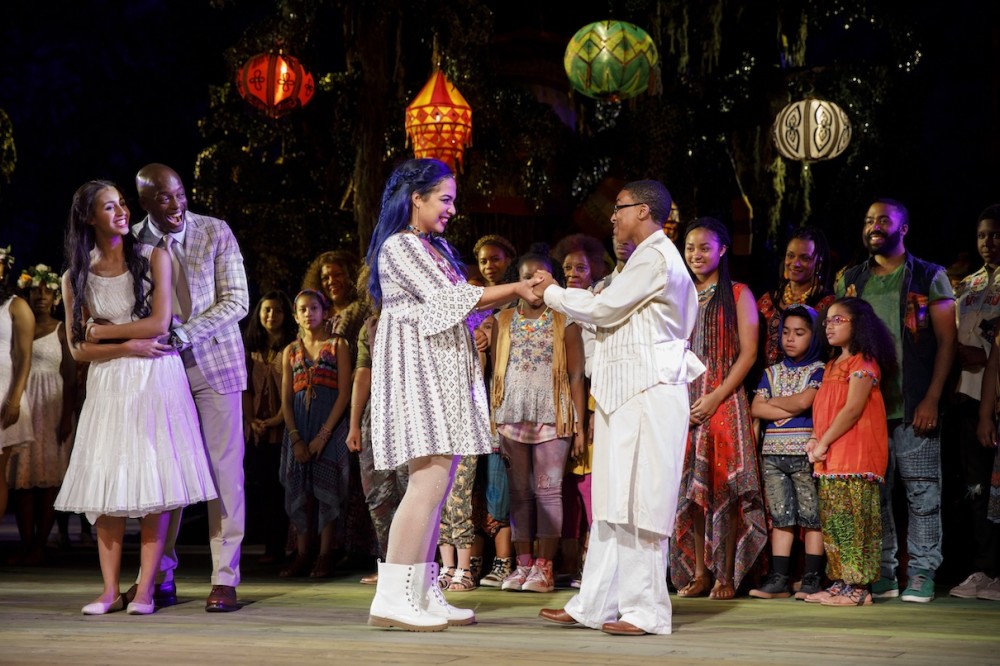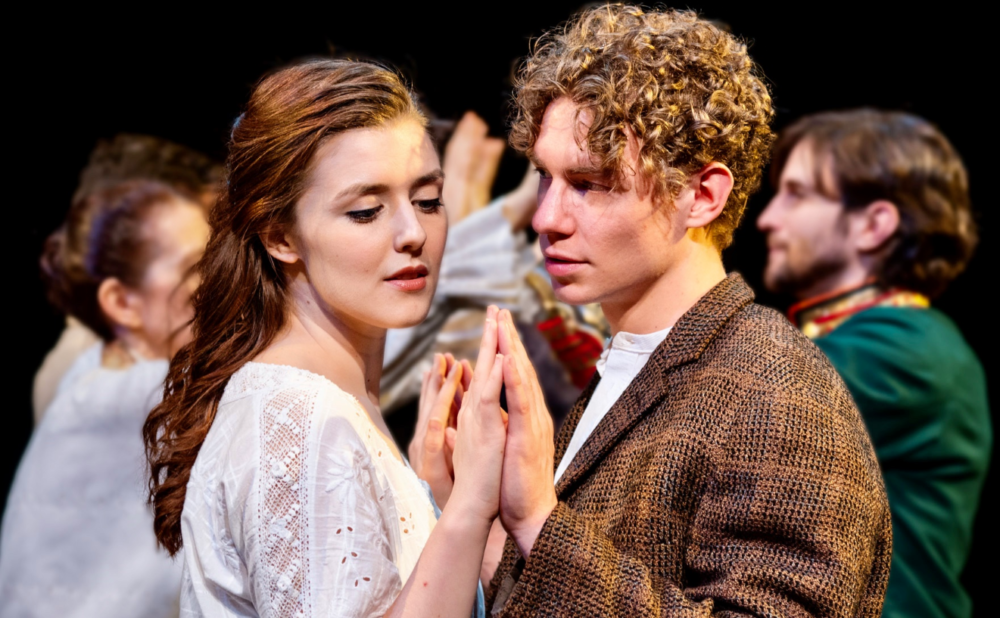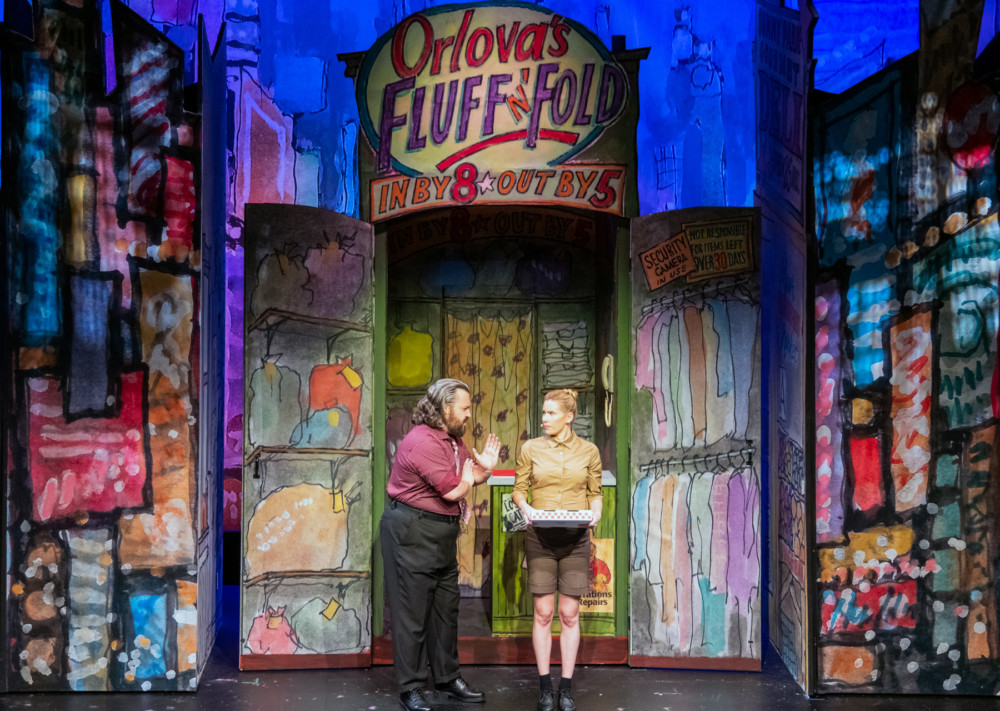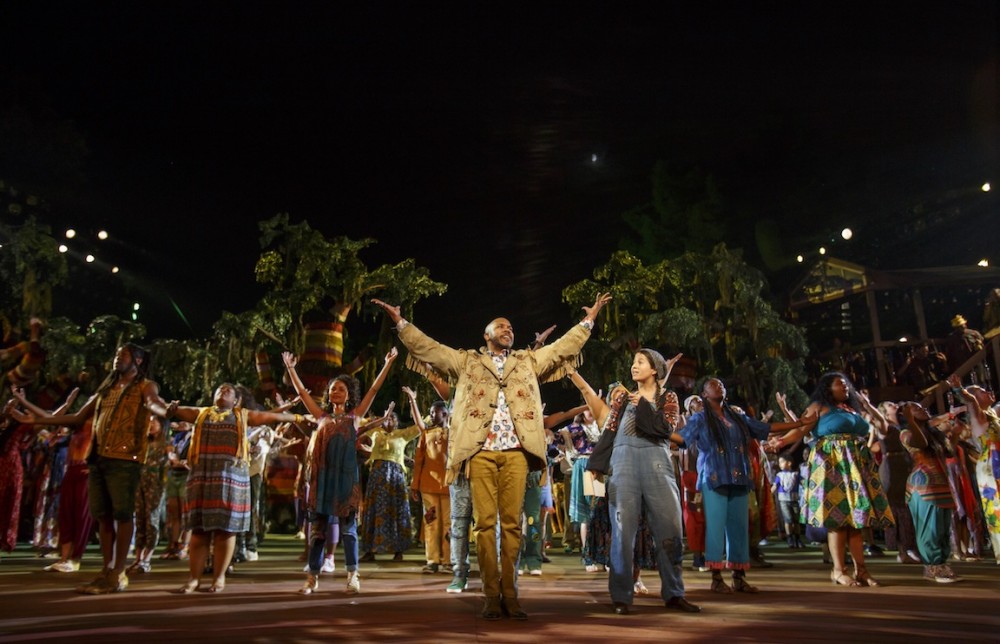
by JK Clarke
William Shakespeare’s plays are far too often slandered as snooty intellectual fare, despite their being, from the beginning, theater for the everyman, with an appeal to a broad range of audiences. However, of late theater companies have been working fervently to dispel that notion, most notably the Public Theater, under the artistic direction of the remarkable Oskar Eustis. First there’s its reinvigorated Mobile Unit, which brings stellar, stripped down (but pure) Shakespeare productions to communities throughout the New York region (from nursing homes to prisons) for audience members who’ve often never seen theater, let alone Shakespeare. And, since 2012 nowhere is the “Shakespeare for the People” concept more evident than in the Public Works program, under the direction of Lear deBessonet, whom Eustis refers to as its “Founding Angel.” Designed to explore the “Pageant” form of theater, celebrating community and spectacle on a grand scale (by including community groups in the productions themselves) the Public Works productions are veritable festivals on stage. Their 2017 production, As You Like It, was an overflowing cornucopia of song, dance, joy and love.
Co-adapted (music and lyrics) by the multi-talented Shaina Taub (who also plays a meditative, philosophical Jacques) and the masterful Laurie Woolery (who also directs), this As You Like It coasts along the surface of Shakespeare’s original, but exploring themes of love and acceptance more deeply through songs that reassert the message. Many of the numbers are reminiscent of Lin-Manuel Miranda’s powerful, poignant ballads; and the set pieces, choreographed by Sonya Tayeh flow as smoothly as if this ensemble of 200+ had been working together for years on end.


As You Like It’s storyline is deceptively simple, despite its seemingly intricate interweaving of parallel plotlines—the facility lies in the fact that each story is almost identical: both Rosalind (niece to Duke Frederick) and Orlando (brother to Oliver, a landowner’s son), flee to the forest to escape persecution at the hands of their relations. In the forest of Arden, Rosalind (beautifully acted and sung by Rebecca Naomi Jones) and her cousin Celia (Idania Quezada as the Duke’s daughter who refuses to leave her friend’s side) dress as men for safety purposes. Rosalind, disguised as the country boy, Ganymede, finds Orlando (terrific Ato Blankson-Wood) and teaches him how to woo . . . her. Ultimately, several other love matches ensue and all are to be married when the Duke arrives in the forest, has a change of heart, repents his faults and gives up his dukedom.
There is betrayal, there is banishment, there are four cases of love at first sight, and there is redemption and renewal. Everything—as complicated as it may seem—gets wrapped up, all tidy and romantic. I suspect that the abundance of hope upon which this play thrives is what makes it among Shakespeare’s most popular.
There is, however, an exciting twist to the romances in this production that follows in the spirit of the Public Works’ theme of the Grand Community. Augmenting the already intriguing questions around gender identity (particularly in Shakespeare’s time, when all roles were played by men) when Rosalind, dressed as a boy pursues, en masque, Orlando and is in turn pursued by shepherd girl, Phoebe (Matelyn Perdomo), here there are further twists: the object of Touchstone’s (Joel Perez) love—Audrey in the original—is converted here to “Andy,” (Troy Anthony) and the coupling is of two men (who appear very much in love); meanwhile, Phoebe’s love interest is not Silvius, but Silvia (Ariel Mapp), and the coupling is of two women. What’s most notable about these changes is how unremarkable and perfectly natural they are. It’s a welcome sight of universal acceptance on the stage.
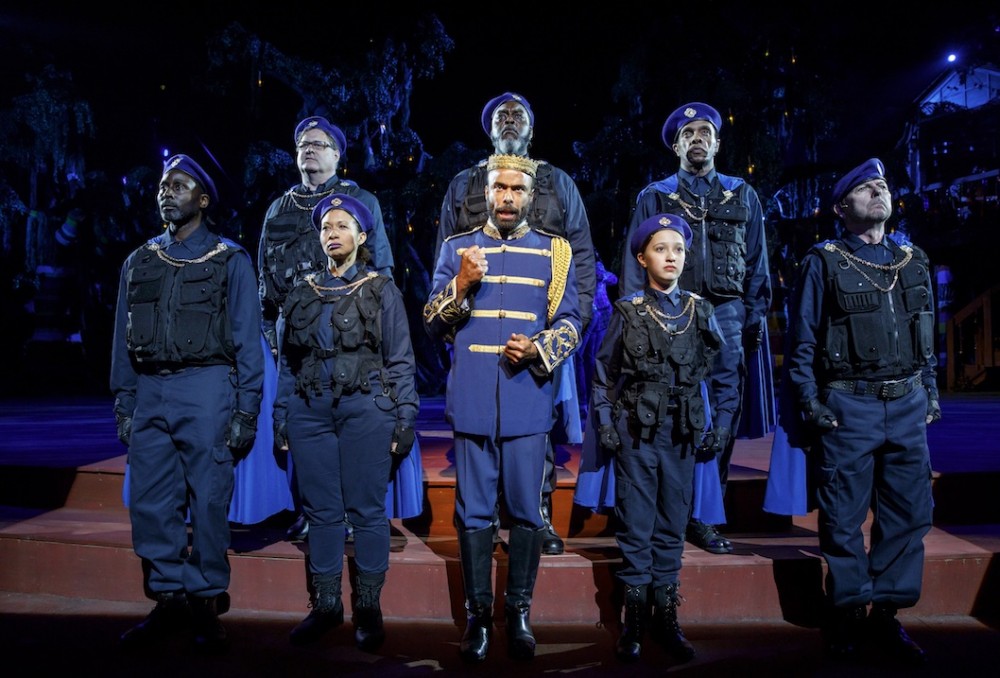

Too many delightful elements of this production to be mentioned make for a fabulous theatrical experience:
- The re-purposed forest-themed David Rockwell set used just weeks prior for A Midsummer Night’s Dream —an ecological pleasure which is just as perfectly suited to the show at hand.
- The use of almost cartoonish villainy to countermand the tenderness of the love scenes was particularly enjoyable: Duke Frederick’s Minions, as they were called, marched militaristically onto the set to music reminiscent of Star Wars’ “Imperial March (Darth Vader’s theme),” and featured a young actress who bore an uncanny resemblance to the Lady Mormont character in HBO’s Game of Thrones.
- The famed wrestling match of As You Like It (who said there wasn’t broad appeal in Elizabethan theater?), became a wonderfully farcical Lucha Libre (Mexican professional entertainment wrestling) event featuring actual wrestlers from the Bronx Wrestling Federation, with names like “Bronco.”
- Special dance groups—like the terrific Freedom Dabka Group, a local Palestinian dance troupe who perform the pre-wedding celebration dance.
- The forest animals masterfully operated by puppeteers, who brought the Forest of Arden seemingly alive, particularly where Orlando fights off the lioness who attacks his heretofore evil brother, Oliver
- The grand set pieces, like “In Arden,” soaring songs celebrating revival in the forest, joyously sung, danced and celebrated on an overflowing stage.
- And on the night I attended (as well as other nights, I suspect), Taub sang for Jones, who was under doctor’s orders not to sing, but could not bear to miss the performances. Her lip-synching, and Taub’s singing, were absolutely perfectly executed and completely imperceptible.
As You Like It is famed for its memorable, oft-quoted lines, most notably Jacques’ “All the world’s a stage and all the men and women merely players,” which is turned into a delightful song led by Jacques (Taub) who instead says, “All the world’s a stage, and everybody’s in the show.” Too true. In fact, this stage appears as populated as a world, but more importantly it is as full, and full of love, as an entire world.
As You Like It. Played September 1-5 at the Delacorte Theatre (Central Park West at West 81st Street) as part of the Public Theater’s Public Works production series. www.publictheater.org
Photos: Joan Marcus


